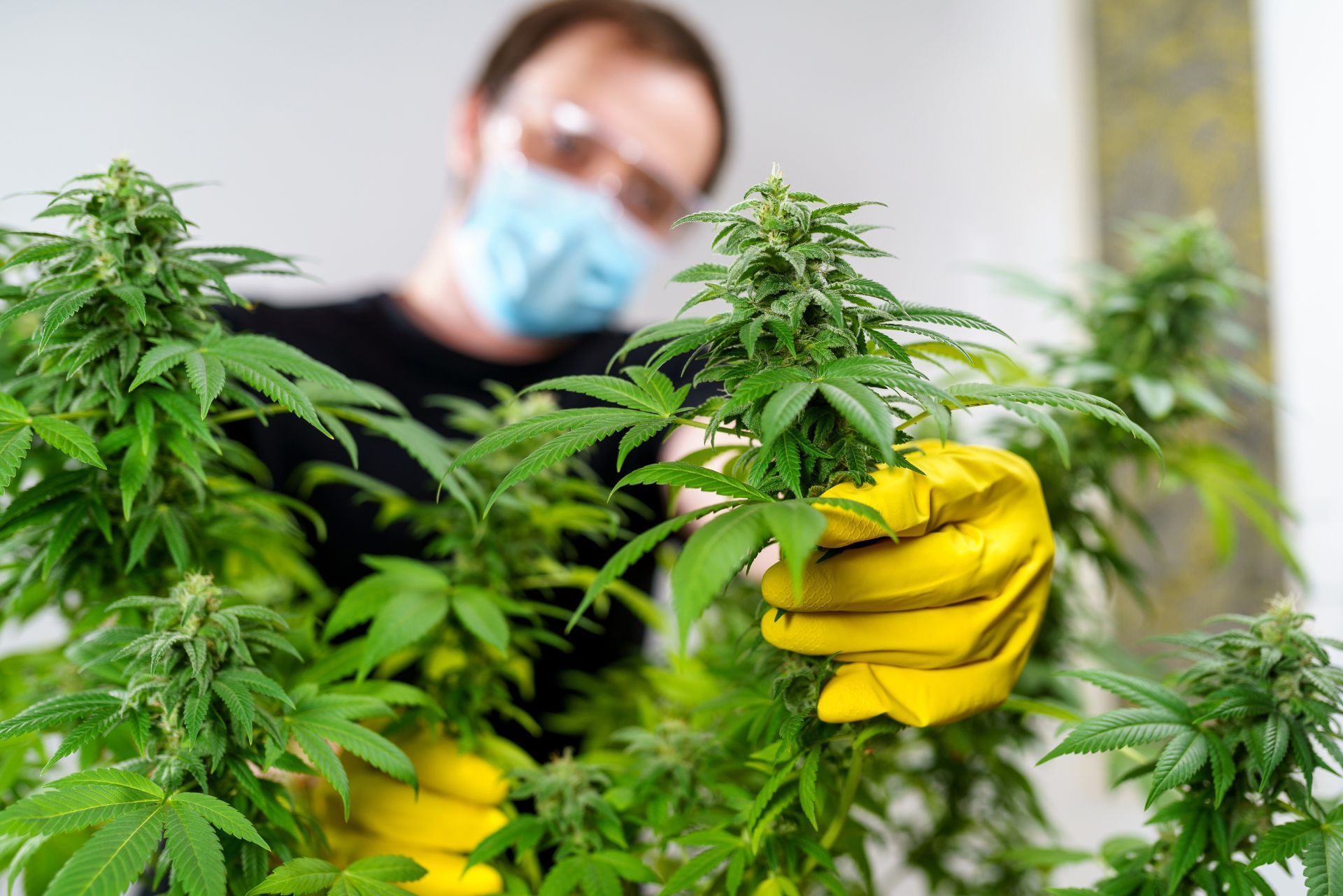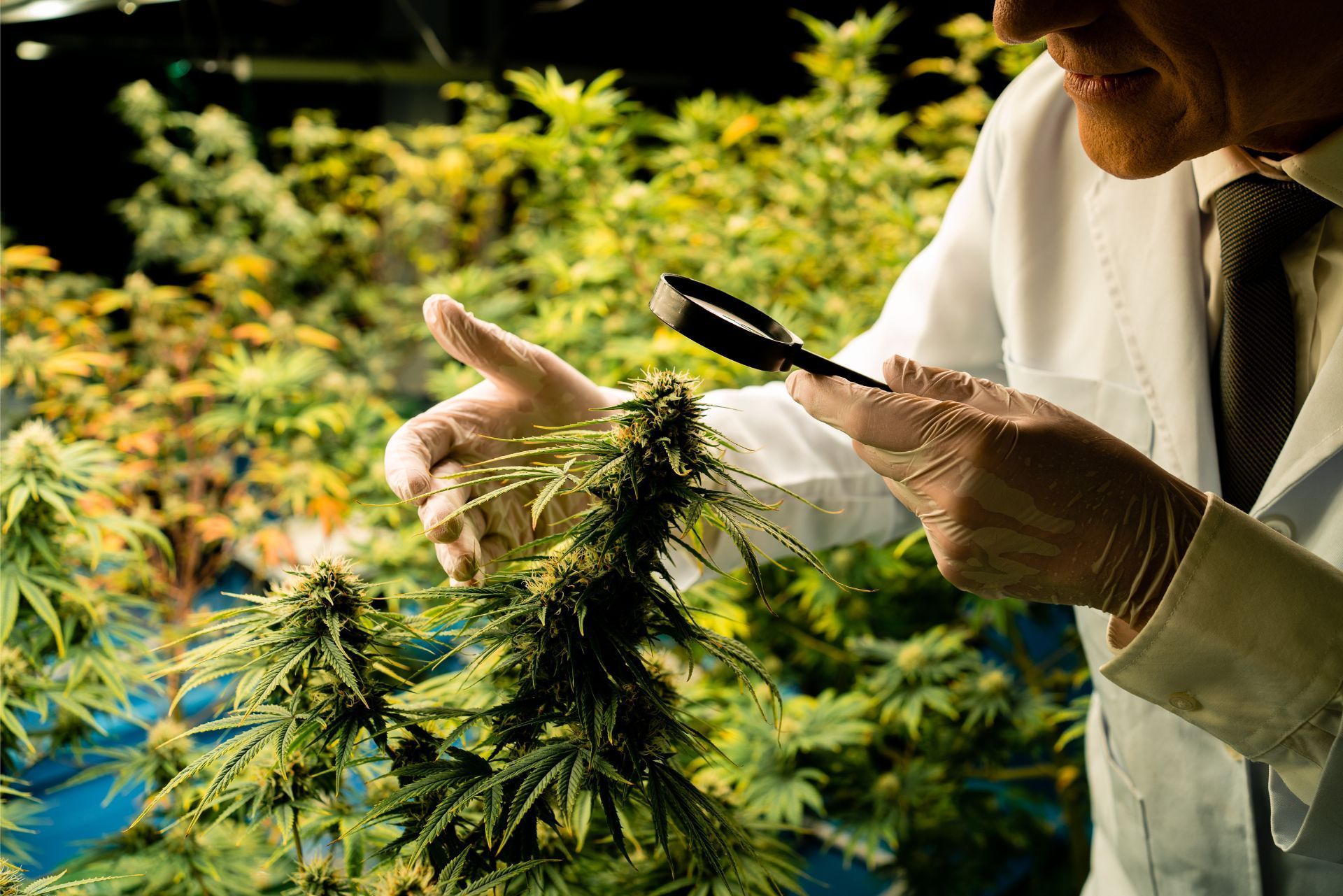Top 3 Recommended Policies

By: Lance Hale
Licensed Commercial Insurance Specialist
425-320-4280
The cannabis industry in Texas is evolving rapidly, with increasing interest from entrepreneurs, investors, and consumers alike. While Texas remains one of the more conservative states regarding cannabis legalization, recent legislative changes and growing medical marijuana programs have opened doors for businesses operating within this space. As the industry grows, so does the need for specialized insurance coverage tailored to the unique risks and regulatory challenges faced by cannabis businesses.
This comprehensive guide covers everything you need to know about Texas cannabis insurance—from understanding the current legal landscape and types of insurance available to navigating underwriting challenges and finding the right coverage for your business.
Understanding the Legal Landscape of Cannabis in Texas
Before diving into insurance specifics, it’s crucial to understand the legal framework surrounding cannabis in Texas. Unlike states such as California or Colorado, Texas has a more restrictive approach to cannabis.
Currently, Texas allows the use of low-THC cannabis products under the Compassionate Use Program, primarily for patients with qualifying medical conditions like epilepsy. Recreational cannabis remains illegal, and possession of larger amounts can lead to criminal charges. This regulatory environment directly impacts the availability and type of insurance products offered in the state.
Despite these restrictions, the cannabis industry in Texas is expanding, especially in the medical marijuana sector and ancillary businesses such as cultivation, processing, and retail of hemp-derived CBD products. This growth creates a demand for insurance products that can manage the unique risks associated with cannabis operations. As more entrepreneurs enter the market, understanding the nuances of compliance and risk management becomes essential for success.
Moreover, the evolving landscape of cannabis legislation in Texas has prompted a surge in public interest and advocacy for broader legalization. Many Texans are pushing for reforms that would not only expand access to medical cannabis but also pave the way for recreational use. This grassroots movement is influencing political discussions and could lead to significant changes in the legal framework, further impacting the insurance landscape as more businesses emerge.
Federal vs. State Law: A Complex Relationship
One of the biggest challenges in Texas cannabis insurance is the conflict between federal and state laws. Cannabis remains a Schedule I controlled substance under federal law, which means many traditional insurers are reluctant to offer coverage to cannabis businesses. This federal prohibition complicates underwriting and claims handling, as insurers must navigate the risk of federal enforcement actions.
For Texas cannabis businesses, this means insurance options are often limited and more expensive than for other industries. However, specialized insurers and brokers have emerged to fill this gap, offering tailored policies that comply with state regulations while mitigating federal risks. These specialized policies can cover a range of needs, from general liability to product liability, and even business interruption insurance, which is crucial for operations that may face sudden regulatory changes or market fluctuations.
Additionally, the rise of technology in the cannabis sector, such as tracking and compliance software, is helping businesses operate within legal boundaries while providing data that can be leveraged for better insurance rates. As the industry matures, the interplay between technology, regulation, and insurance will become increasingly important, shaping the future of cannabis operations in Texas.
Types of Cannabis Insurance Available in Texas
Texas cannabis businesses require a variety of insurance coverages to protect against operational risks, legal liabilities, and property damage. Understanding the types of insurance available is essential for business owners to ensure comprehensive protection.
General Liability Insurance
General liability insurance is a foundational coverage that protects cannabis businesses from claims related to bodily injury, property damage, and personal injury caused by their operations. For example, if a customer slips and falls in a dispensary or if a product causes harm, this insurance can cover legal fees and settlements.
In Texas, securing general liability insurance for cannabis businesses can be challenging due to the federal status of cannabis, but many insurers now offer policies specifically designed for the industry. These specialized policies often include unique provisions that address the nuances of cannabis operations, such as coverage for events and promotions that may attract large crowds, which can increase the risk of accidents.
Product Liability Insurance
Product liability insurance is critical for businesses involved in manufacturing, processing, or selling cannabis products. This coverage protects against claims arising from product defects, contamination, or adverse health effects caused by cannabis products.
Given the strict regulatory standards for cannabis products in Texas, product liability insurance helps businesses manage the risks associated with recalls, lawsuits, and regulatory fines. Additionally, as consumer awareness and scrutiny of product safety continue to rise, having robust product liability coverage can enhance a business's reputation and foster trust among customers, which is invaluable in a competitive market.
Property Insurance
Property insurance covers physical assets such as buildings, equipment, inventory, and crops. For cannabis cultivators and processors in Texas, this coverage is vital to protect against losses from fire, theft, vandalism, or natural disasters.
Because cannabis plants and products are often high-value assets, property insurance policies for cannabis businesses may include specific endorsements to cover these unique risks. Furthermore, many insurers are starting to offer additional protections for specialized equipment used in cultivation and processing, recognizing the significant investments that cannabis businesses make in their operations.
Crop Insurance
Crop insurance is a specialized form of coverage designed for cannabis cultivators. It protects against losses due to environmental factors like drought, pests, or disease. While crop insurance is common in traditional agriculture, it is less widely available for cannabis due to federal restrictions.
In Texas, some insurers offer crop insurance tailored to hemp farmers, reflecting the state’s growing hemp industry under the 2018 Farm Bill. However, coverage for THC-rich cannabis crops remains limited. As the cannabis industry continues to evolve, ongoing advocacy efforts may lead to more comprehensive crop insurance options, allowing cultivators to better safeguard their investments against unpredictable agricultural risks.
Workers’ Compensation Insurance
Texas does not require most private employers to carry workers’ compensation insurance, but many cannabis businesses choose to purchase it voluntarily. This coverage protects employees who suffer work-related injuries or illnesses, covering medical expenses and lost wages.
For cannabis businesses, workers’ compensation is particularly important due to the physical nature of cultivation and processing work, which can involve exposure to chemicals, heavy machinery, and repetitive tasks. Additionally, implementing a strong safety program and providing workers' compensation coverage can help businesses attract and retain skilled employees, as workers increasingly seek employers who prioritize their health and safety.
Commercial Auto Insurance
Businesses that use vehicles for deliveries or transportation of cannabis products need commercial auto insurance. This coverage protects against liability and physical damage related to business vehicles.
Given the regulatory scrutiny on cannabis transportation, having proper commercial auto insurance is essential for compliance and risk management. Moreover, as the market for cannabis continues to expand, businesses may find themselves needing to scale their transportation operations, making it crucial to have a flexible commercial auto insurance policy that can adapt to changing business needs and ensure that all vehicles are adequately covered during transit.

Challenges in Securing Cannabis Insurance in Texas
Despite the growing cannabis market, obtaining insurance in Texas is not without hurdles. Several factors contribute to the complexity and cost of cannabis insurance policies.
Federal Prohibition and Banking Restrictions
The federal classification of cannabis as an illegal substance creates significant barriers for insurers. Many traditional insurance carriers avoid cannabis businesses altogether to mitigate the risk of federal enforcement or legal complications.
Additionally, banking restrictions on cannabis businesses in Texas make it difficult for insurers to assess financial stability and risk profiles, further complicating underwriting processes. These banking challenges also mean that cannabis businesses often operate on a cash-only basis, which can raise red flags for insurers concerned about financial transparency and the potential for money laundering.
High Risk Perception and Elevated Premiums
Insurers often view cannabis businesses as high risk due to regulatory uncertainty, product liability concerns, and the potential for criminal activity. This perception leads to higher insurance premiums compared to other industries.
For example, a Texas cannabis dispensary might pay significantly more for general liability insurance than a comparable retail store in a non-cannabis sector. The elevated premiums can strain the budgets of emerging cannabis businesses, making it challenging for them to allocate resources effectively for growth and compliance.
Limited Availability of Specialized Coverage
While the market for cannabis insurance is growing, specialized coverage options remain limited, especially for THC-rich cannabis operations. Many insurers focus on hemp and CBD businesses, which face fewer legal restrictions.
Texas cannabis businesses may need to work with brokers who specialize in cannabis insurance to access the right policies and negotiate favorable terms. These brokers often have a deep understanding of the unique risks associated with cannabis operations and can help businesses navigate the complex landscape of insurance options, including property coverage, product liability, and workers' compensation. As the industry evolves, the demand for comprehensive insurance solutions will likely drive innovation and expansion in the market, leading to more tailored policies that meet the specific needs of Texas cannabis operators.
How to Choose the Right Cannabis Insurance in Texas
Selecting the appropriate insurance coverage is critical for protecting your cannabis business and ensuring compliance with state laws. Here are key considerations when choosing cannabis insurance in Texas.
Assess Your Business Risks
Start by evaluating the specific risks your business faces. For example, a cultivation facility will have different exposures than a retail dispensary or a hemp processor. Understanding your risk profile helps identify the necessary coverages.
Consider factors such as product liability, property damage, employee safety, and transportation risks. Additionally, think about the unique challenges posed by the Texas climate, which can affect crop yields and increase the risk of natural disasters. Understanding these nuances can help you tailor your insurance needs effectively.
Work with Experienced Cannabis Insurance Brokers
Partnering with brokers who specialize in cannabis insurance can provide valuable expertise and access to carriers familiar with the industry. These brokers can help navigate complex underwriting requirements and find policies tailored to Texas regulations.
They can also assist in bundling coverages to optimize protection and cost-efficiency. Moreover, experienced brokers often have insights into emerging trends and can advise on additional coverages that may become relevant as the industry evolves, ensuring your business stays ahead of potential risks.
Review Policy Terms and Exclusions Carefully
Because cannabis insurance policies often include unique terms and exclusions, it’s essential to review them thoroughly. Pay attention to coverage limits, deductibles, and any exclusions related to federal law or specific cannabis activities.
Ensure the policy aligns with your business operations and provides adequate protection. It’s also wise to consult with a legal expert who understands cannabis law to clarify any ambiguous terms and ensure that your policy complies with both state and federal regulations, safeguarding your business from unexpected liabilities.
Consider Risk Management Strategies
Implementing strong risk management practices can reduce insurance premiums and improve coverage options. This includes compliance with state regulations, employee training, security measures, and quality control protocols.
Insurers are more likely to offer favorable terms to businesses that demonstrate proactive risk mitigation. Additionally, regularly reviewing and updating your risk management strategies can help you adapt to changing regulations and market conditions, further enhancing your business's resilience and sustainability in the competitive cannabis landscape.
The Future of Cannabis Insurance in Texas
As Texas continues to explore cannabis policy reforms and expand medical marijuana programs, the cannabis insurance market is poised for growth and innovation.
Potential Legal Reforms and Impact on Insurance
Legislative efforts to legalize recreational cannabis or expand medical use could dramatically change the insurance landscape. Greater legal clarity and reduced federal-state conflicts would encourage more insurers to enter the market, increasing competition and lowering premiums.
Businesses should stay informed about policy developments to anticipate changes in insurance requirements and opportunities. Additionally, as more states adopt progressive cannabis laws, Texas could find itself in a competitive position to attract investment and talent in the cannabis sector. This influx could lead to a surge in demand for tailored insurance products that cater specifically to the evolving needs of cannabis entrepreneurs, from cultivation to distribution.
Technological Advances and Data-Driven Underwriting
Advances in technology and data analytics are enabling insurers to better assess cannabis business risks. For example, satellite imagery and IoT sensors can monitor crop health and security, providing real-time data that supports more accurate underwriting.
These innovations may lead to more customized and affordable insurance products tailored to the unique needs of Texas cannabis businesses. Furthermore, the integration of blockchain technology could enhance transparency and security in transactions, allowing insurers to streamline claims processes and reduce fraud. As the industry matures, the ability to leverage big data will not only improve risk assessment but also foster a more collaborative relationship between insurers and cannabis operators, paving the way for innovative coverage solutions.
Growth of Ancillary Cannabis Businesses
Beyond cultivation and retail, ancillary businesses such as packaging, testing labs, and software providers are emerging in Texas. These companies also require specialized insurance coverage to address their distinct risks.
The expansion of ancillary services will broaden the cannabis insurance market and create new opportunities for insurers and brokers. As these ancillary businesses grow, they will likely face unique challenges, such as compliance with stringent regulations and the need for specialized equipment. Insurers will need to develop niche products that cater to these specific needs, such as liability coverage for testing labs or cyber insurance for cannabis-related tech firms. This diversification will not only enhance the resilience of the cannabis insurance market but also empower ancillary businesses to thrive in a rapidly evolving landscape.

Conclusion
Texas cannabis insurance is a complex but essential component of operating a successful cannabis business in the state. Understanding the legal environment, available insurance types, and challenges in securing coverage helps business owners make informed decisions to protect their investments.
Working with knowledgeable brokers, assessing risks carefully, and staying abreast of regulatory changes are key strategies for navigating the evolving Texas cannabis insurance landscape. As the industry grows and matures, insurance products will continue to adapt, offering better protection and peace of mind for cannabis entrepreneurs across Texas.

